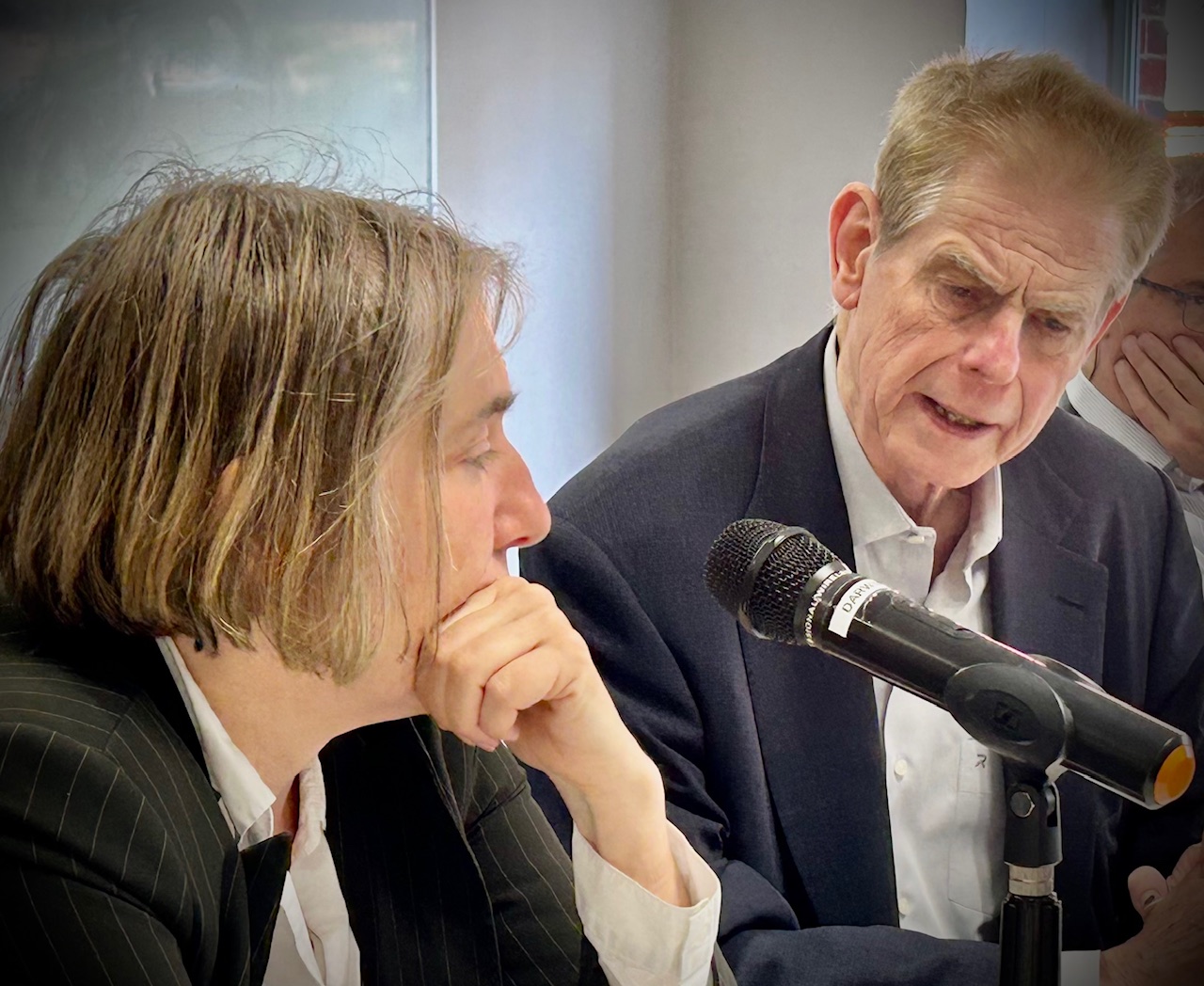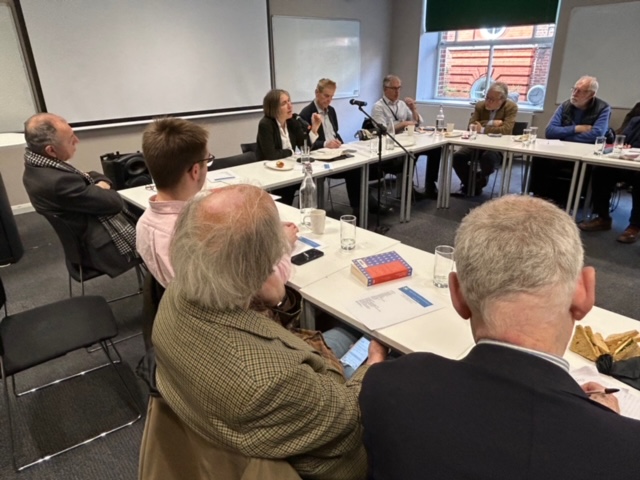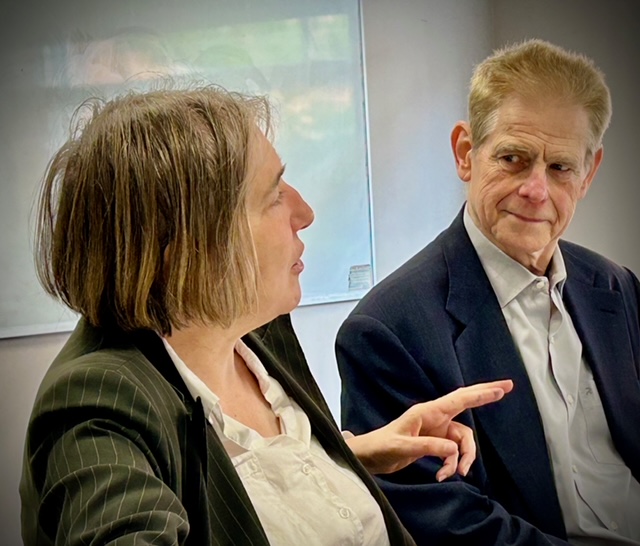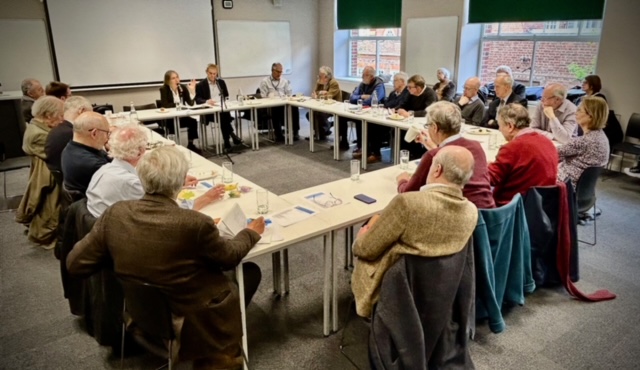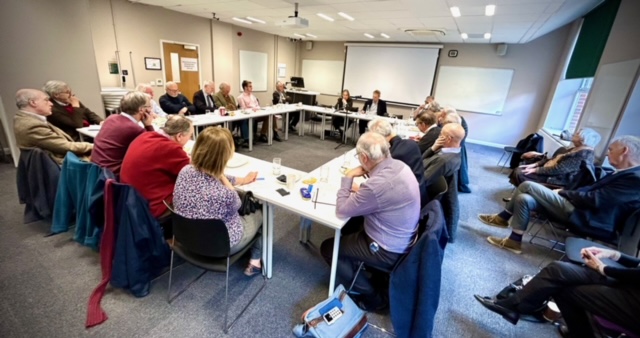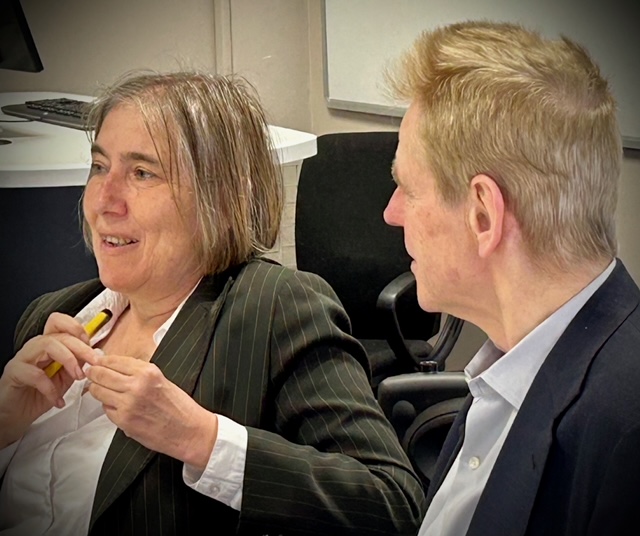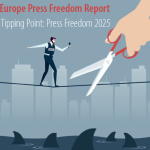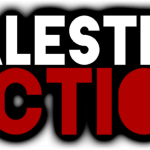With the European Parliament elections of June 6 – 9 predicted to show a turn to the right and ongoing wars in Ukraine and Gaza, it’s actually energy security that is likely to become a major issue of dispute says leading geopolitical thinker Helen Thompson.
At an AEJ JUK lunch meeting on April 17 she examined a number of political factors affecting the European Union and noted the relative decline in Europe’s global political and economic leverage which has exposed a collective weakness.
Helen Thompson is professor of political economy at the University of Cambridge Clare College and a leading thinker and commentator on the contest for energy resources and the history of the democratic, economic, and geopolitical disruptions of the twenty-first century.
She is co-host of the Unherd podcast These Times, and her latest book is Disorder: Hard Times in the 21stCentury (2022).
AEJ UK chairman William Horsley has this report on the meeting.

By William Horsley – 24 April 2024
A standard view of the European Parliament elections in June is that they will show a significant shift towards populist and virulently anti-EU parties but on balance the centre will hold. The EU’s flagship “energy transition” plan will go on despite grassroots resistance and the risk of fuelling support for the far right. European leaders have finally realised they must raise their game drastically in response to Russia’s territorial gains and the devastating destruction it is wreaking in Ukraine. For many political actors the focus will as usual be on the power balance that results, and the ongoing search for a consensus on issues like migration and the cost of living which matter most to voters.
But what if that is too rosey, or simply wrong?
Speaking to the AEJ last week on “Re-making Europe’s political map”, Cambridge political scientist Helen Thompson stressed it is impossible to overstate the “nightmare” of what Russia’s invasion of Ukraine means for Europe’s future — especially because it strikes at what she sees as the EU’s key vulnerability: its enduring lack of energy security. In her unflinching assessment, the war is one of four big energy-related “shocks” that have hit Europe in quick succession in the past three years, In all cases, the negative effects are felt in the UK and other non-EU countries as well.
The blows have come at a time when America’s shale gas bonanza has largely freed it from its own energy vulnerability, and the whole architecture of international relations — including the reliable embrace of the USA that has nurtured the EU’s “peace project” since its birth — is showing signs of coming undone.
As Helen Thompson tells it, at the start of 2021 the extent of the EU’s energy frailty was poorly understood. A “parting of the ways” was evident between the US and Europe on fundamental matters and EU states including Germany, Italy and Hungary were dangerously over-reliant on Russia for energy. Yet France’s President Macron was boldy urging Europe to pursue “strategic autonomy” and the European Commission was embarked from a position of weakness on a transformational and costly energy transition to meet climate targets and lessen Europe’s collective reliance on an increasingly unpredictable Russia.
The first shock, in the second half of 2021, came with a sharp spike in energy inflation. Gazprom was already limiting its supplies of pipeline gas into Europe, and to fuel its domestic growth China bought up a bigger than usual share of available LNG supplies, forcing global gas and commodity prices sharply up.
Second, Russia’s full-scale invasion of Ukraine in February 2022 was not only a political Zeitenwende – a historic turning point — as Germany’s Chancellor Sholz called it. It caused a frantic scramble for supplies of LNG, now led by Germany, Europe’s most energy-intensive economy, which found itself starved of the gas imports that accounted for more than half its needs. This time round the Europeans outbid China and Asia. Gas-driven inflation soared once again.
Third, President Joe Biden’s harmless-sounding Inflation Reduction Act of August 2022 was in fact deeply protectionist. It gave a crucial advantage to American firms over European as well as Chinese rivals in the race to acquire LNG supplies, as well as the massive task of decarbonising the US economy. With some exaggeration, Helen Thompson observed, the Act virtually “ended the multilateral trade order”.
The fourth shock followed Hamas’ bloody attack on Israel in October 2023 and the enormous loss of life in Gaza under the Israeli army’s devastating onslaught there. Houthi attacks from Yemen interrupted commercial shipping in the Red Sea and Suez Canal, threatening Europe’s vital imports from the Gulf, clogging up supply chains and pushing world trade costs to new highs.
Professor Thompson believes this series of shocks shows two major underlying causes of Europe’s geo-political weakness which must be faced: the loss of America as a reliable anchor of European security, and the sorry lack of the key resources the EU needs to free itself from energy dependency in the years to come.
The “energy transition” to renewables and nuclear require uranium as fuel, or for solar and wind energy you need metals like lithium, copper and nickel – none of which Europe has in abundance. With France and some other countries wedded to a “nuclear renaissance” and the German Chancellor adamant that the era of nuclear is over, an unprecedented struggle to decide the EU’s direction looms. Before a recent EU Energy Council meeting the rival camps had met separately to coordinate among themselves. In the worst case, Professor Thompson warns, this could lead to paralysis.
In further discussion, Helen Thompson addressed some key political dilemmas arising from her picture of a Europe which faces a loss of influence and agency in perilous times.
- Overcoming the political divisions on display in this “European election year” will be exceptionally difficult. It’s inherently hard for a “multinational union” to agree coherent common policies or implement tough reforms when each national leader must face a backlash from their own voters – as they do over green policies and support for Ukraine. The weakness of Germany’s three-party coalition was evident from the rising electoral support for the AfD and others offering more radical solutions. Macron, too, faces a resurgent far right … and who will be the next leader to take his place?
- The EU’s public commitment to Ukraine’s defence against Russian aggression, and to pave the way for its eventual membership in the Union, would both come with very high costs. Asked about the legacy of Germany’s persistent closeness to Putin’s Russia right up until the invasion two years ago, Thompson remarked that during all that time Germany “had never treated Ukraine as a serious country”. It was, she said, having a profound reckoning with that record now; or was the “old way of thinking” too deeply entrenched? The question was asked rhetorically.
- Energy has been central to the European project ever since 1945. Today’s several challenges related to energy make a difficult situation worse. Climate leadership and the energy transition have replaced the goals of the EU’s founding fathers as its new “big idea”. But far from gaining a utopia, Europe will not be able to free itself from energy dependence for the foreseeable future.
AEJ UK meeting 17 April 2024
